Where Political Opposites Share More Than Just a Zip Code
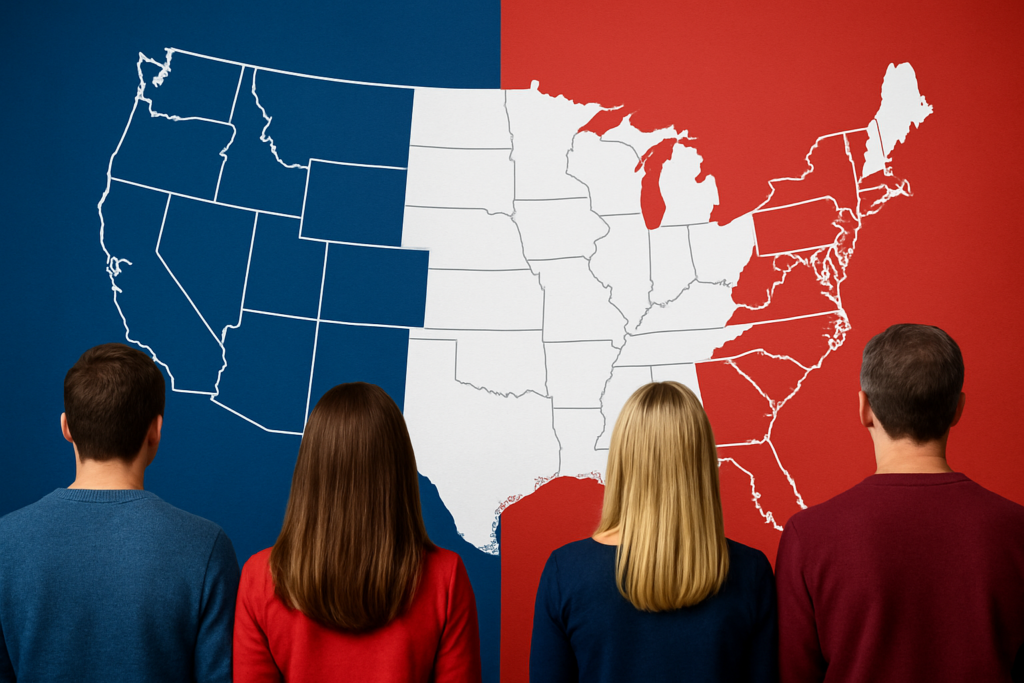
In a time when headlines scream division, these 15 American cities quietly prove that political opposites can, in fact, share the same streets, schools, and coffee shops. From college towns in red states to urban hubs in rural counties, these places have found ways to balance blue and red without boiling over.
It’s not always perfect- but it’s real. Neighbors talk. Local businesses thrive. And in many cases, civic pride trumps party lines. These cities offer a refreshing reminder that coexistence isn’t just possible- it’s already happening.
1. Tucson, AZ
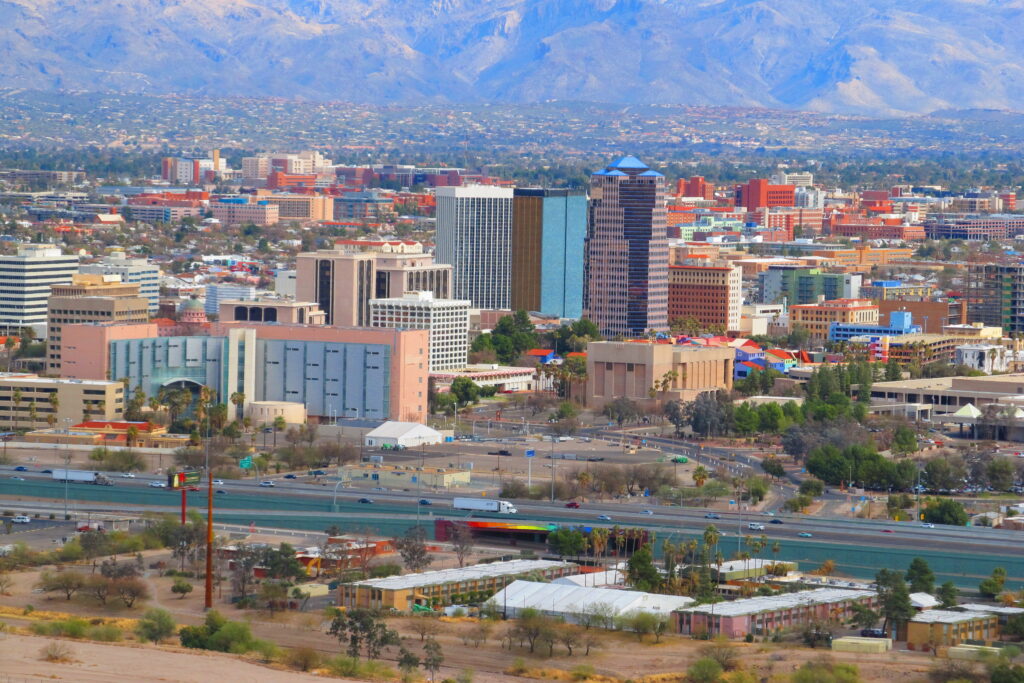
Tucson is an interesting blend, a college town vibe in a deeply conservative state. It’s home to the University of Arizona, which gives it a youthful, progressive energy. But just outside the city limits, conservative values still run strong. Pima County votes blue, but nearby counties stay red. “You learn to talk across lines,” one Tucson bartender told NPR. Neighbors know where each other stands, but that hasn’t stopped porch conversations or block parties. It’s not perfect, but Tucson’s ability to coexist, liberal core and red surroundings, shows how diverse viewpoints can live side by side in the same desert sun.
2. Atlanta, GA
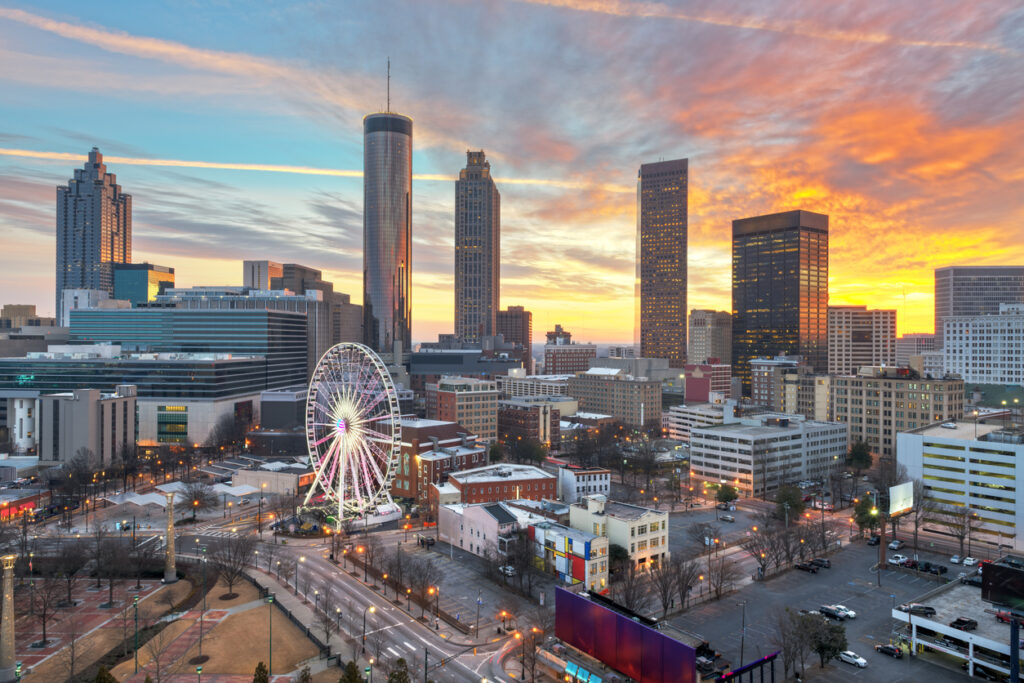
Atlanta is a progressive powerhouse surrounded by staunchly conservative suburbs. The city’s Black leadership, creative economy, and youthful culture make it politically left-leaning, while the outskirts vote solidly Republican. “You can drive 30 minutes and feel like you’re in a different world,” said a local college professor in The Atlanta Journal-Constitution. Still, many Atlantans commute across political lines, work in bipartisan offices, and share city infrastructure. The tension is real, but so is the connection. Despite being politically divided, people in Atlanta find themselves linked by traffic, history, and a deep Southern resilience.
3. Raleigh, NC
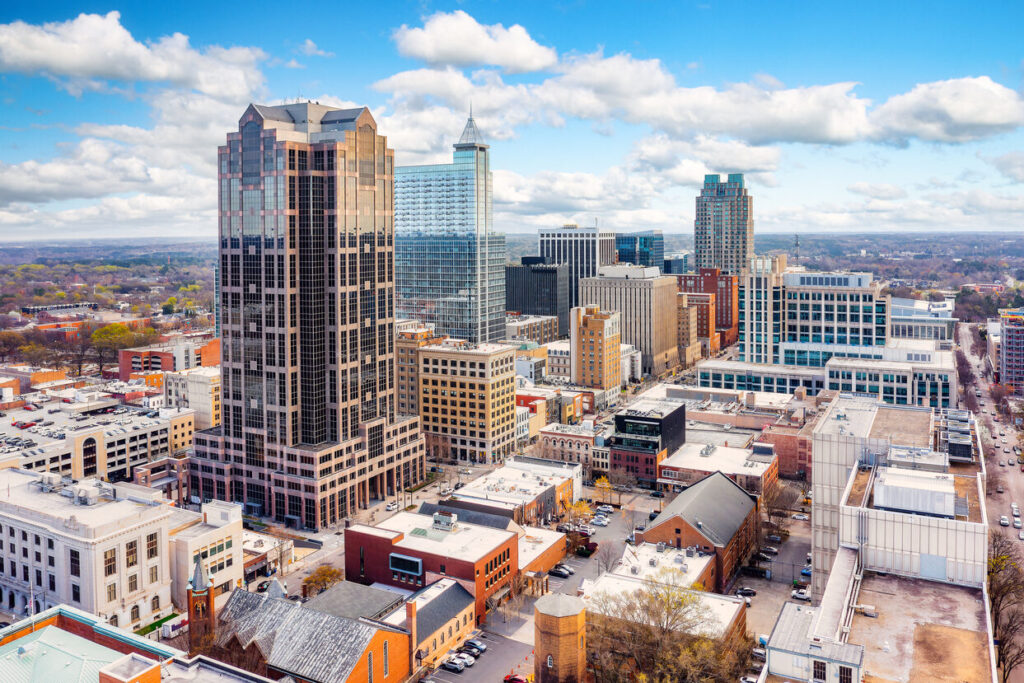
Raleigh blends urban progressivism with conservative tradition. As the capital of North Carolina and home to a tech scene and major universities, its downtown leans left. But surrounding suburbs and rural edges maintain firm conservative values. “It’s like two different conversations happening in the same room,” shared one longtime resident on Reddit. Yet, people still attend the same farmers markets and school meetings. It’s not friction-free, but there’s balance. Raleigh’s unique location in a swing state fosters political awareness without total polarization, making it one of the quieter examples of ideological coexistence in the South.
4. Tampa, FL
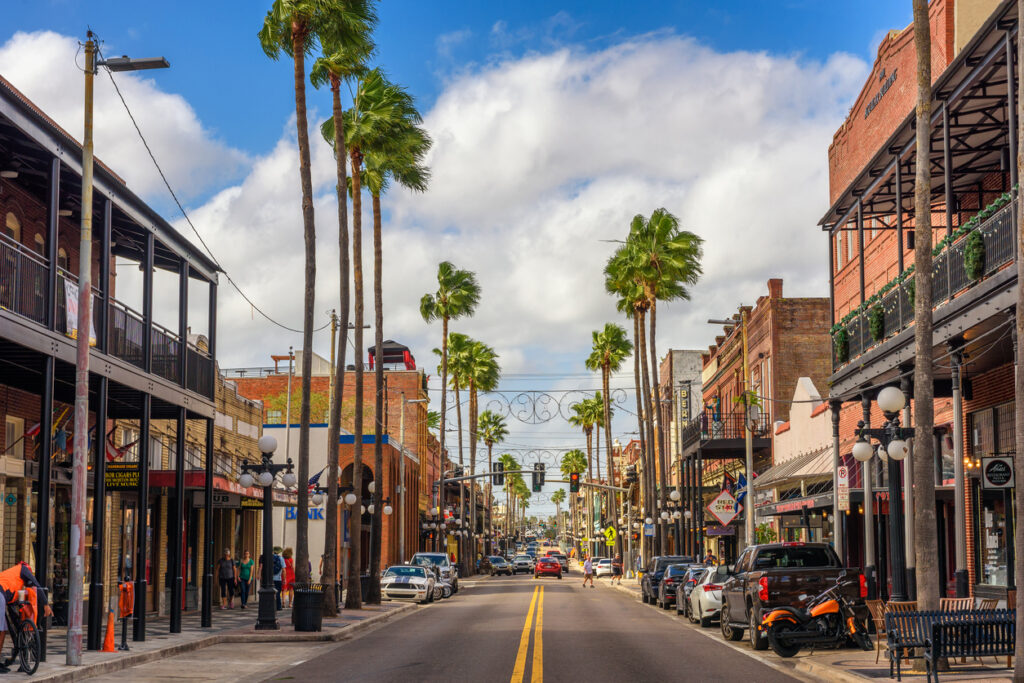
Tampa may be one of the most evenly split metro areas in America. With a mix of retirees, professionals, military families, and college students, political identity isn’t predictable. You can find someone passionate about climate change and their neighbor focused on gun rights. “I call it the ‘Tampa shuffle,’” said a local teacher in The Washington Post. People tend to avoid deep political divides in favor of local issues and shared routines. Election seasons can be tense, but day-to-day life here proves that political balance can create a surprisingly peaceful kind of civic coexistence.
5. Pittsburgh, PA
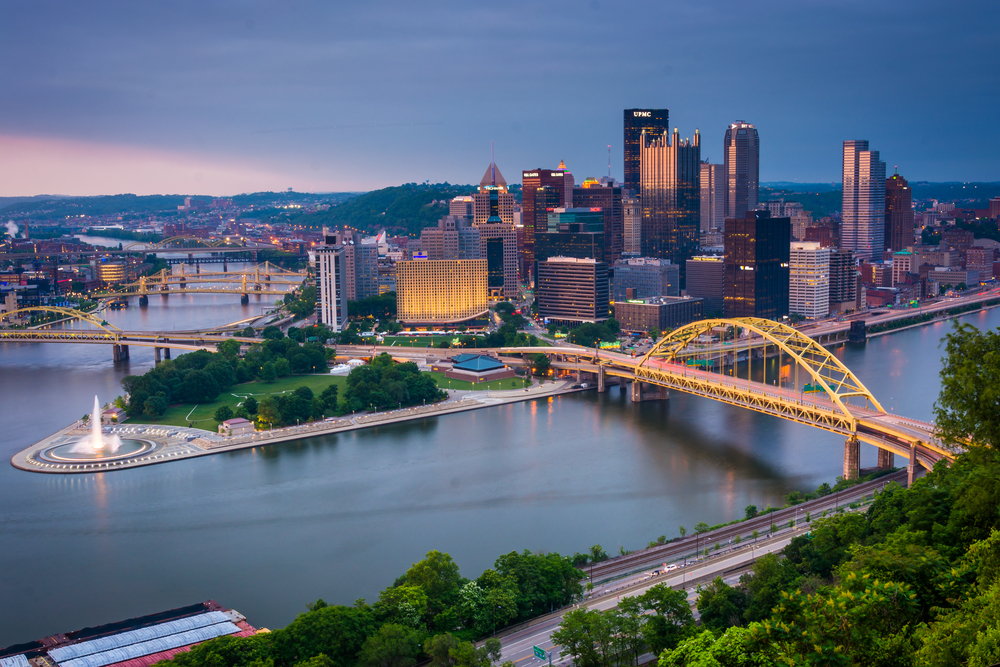
Pittsburgh carries its working-class roots proudly but has quietly become a progressive hub. Once dominated by steel mills and union power, the city is now home to tech startups and socially conscious universities. But travel just a few miles out and you’ll hit conservative neighborhoods where tradition still holds strong. “You get a mix of hardworking values and liberal innovation,” said a city council member to The New York Times. It’s a quiet push-pull dynamic where mutual respect often wins out. Pittsburgh knows its past but isn’t afraid of its evolving political future.
6. Phoenix, AZ
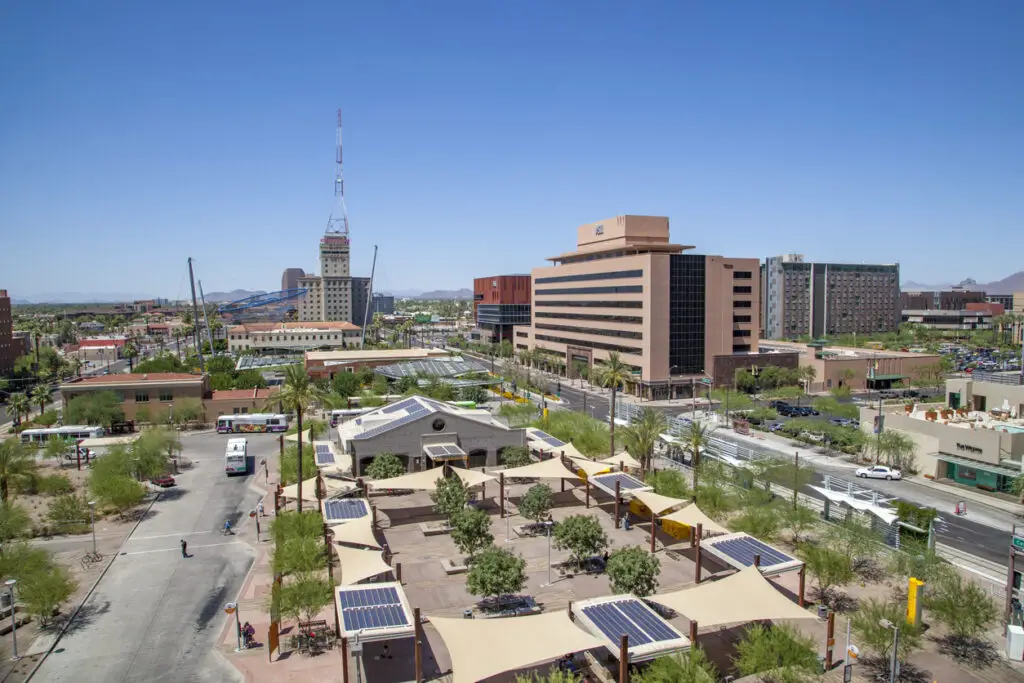
Phoenix is changing quickly and its politics reflect that. The city’s population boom has brought in new voices, especially younger voters and Latino communities leaning left. Yet, Arizona’s roots remain conservative and many in Phoenix still hold tightly to those values. “This city feels like a debate,” said a voter during a PBS interview. Every election is closely watched here because no one can predict the outcome. That tension makes civic life more engaged. While views clash, the daily reality of living together keeps extremes in check and that’s what makes Phoenix worth watching.
7. Denver, CO
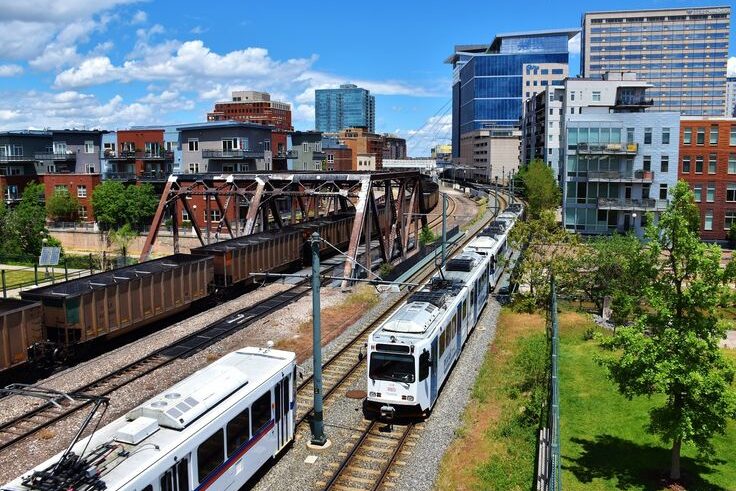
Denver has a strong liberal identity, especially when it comes to environmental policy, social issues, and public health. But look closer and there’s a libertarian undercurrent, especially among those who value small government and gun rights. “It’s not a leftist bubble, it’s a Western blend,” said a local blogger. Neighbors with wildly different beliefs still share hiking trails, breweries, and school boards. In Denver, people aren’t quick to cancel or condemn. They’ve learned that ideological differences don’t have to end friendships. The mountains may divide the skyline, but the people here tend to stay connected.
8. Las Vegas, NV
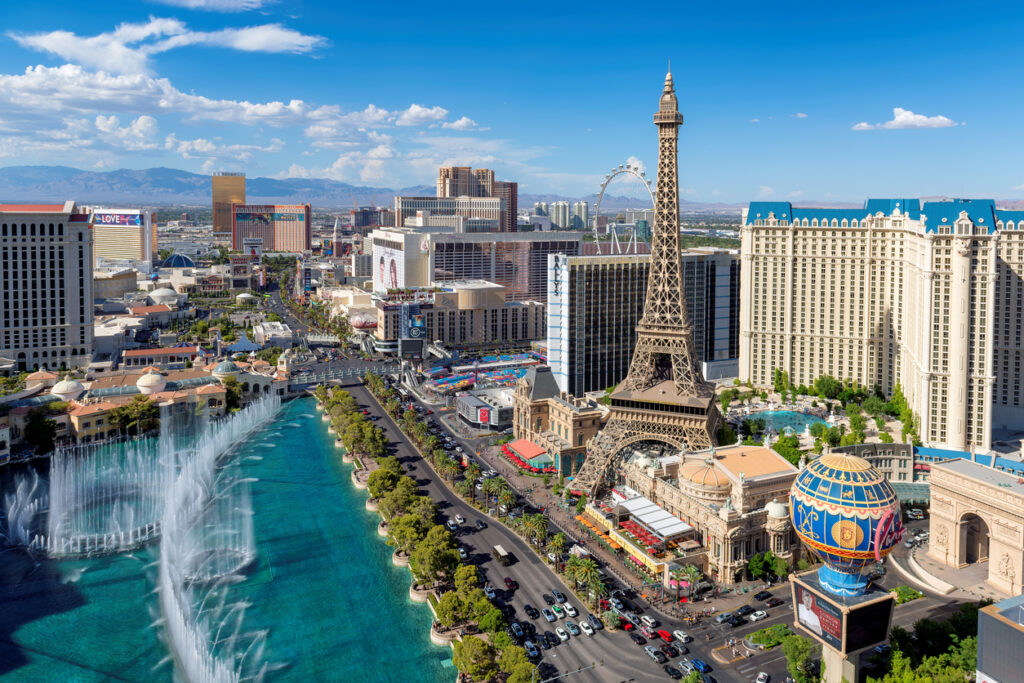
Las Vegas might seem like a liberal playground, but its political makeup is surprisingly mixed. Union-backed hospitality workers vote blue, while conservative business interests favor low taxes and limited regulation. “Vegas isn’t just about casinos, it’s about economic balance,” said a Nevada political reporter to Politico. The Strip leans left; the suburbs lean right. Yet, they depend on each other economically and culturally. Everyone plays a role in keeping the city’s engine running. The city’s fast pace keeps people focused on results rather than ideology and that’s a big part of how they make it work.
9. Houston, TX
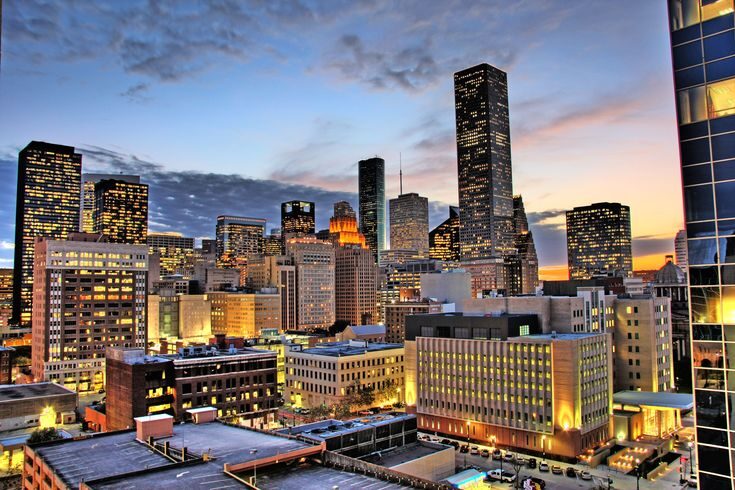
Houston is big, and so is its political range. Inside the city, you’ll find progressive politics, fueled by its diverse population and urban challenges. Step into the suburbs and you’ll hit strong Republican districts with deep conservative traditions. “Houston is proof that urban and suburban can’t be lumped together,” said an NPR correspondent. The city thrives on contrasts, mosques and megachurches, civil rights marches and rodeos. It’s not always harmonious, but it works. People learn to live with differences because, in Houston, it’s less about labels and more about finding shared ways to move forward.
10. Milwaukee, WI
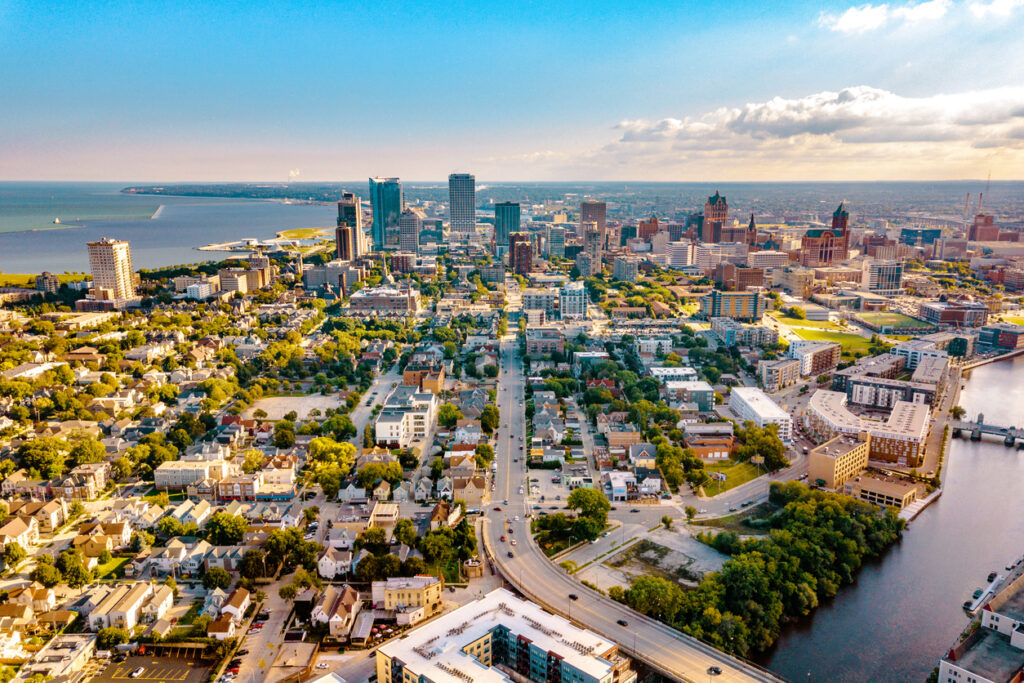
Milwaukee is proudly liberal, with its activism, labor roots, and vibrant cultural scene. Just minutes outside the city, however, you’re in GOP country. The divide is sharp, but the proximity means people constantly cross political lines in everyday life. “We disagree, but we’re still neighbors,” said one resident during a Wisconsin Public Radio phone-in. The city plays a critical role in national elections and both sides know their voices matter. That mutual awareness creates a level of political respect that helps keep communication open even when tensions run high.
11. Columbus, OH
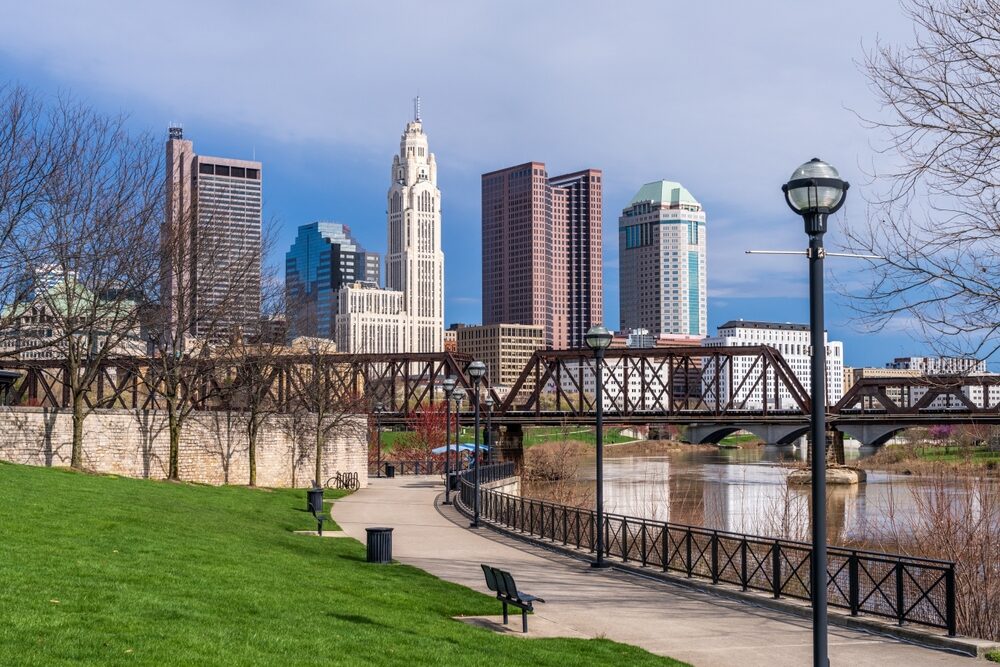
Columbus represents the political center of Ohio, literally and symbolically. It houses Ohio State University, progressive organizations, and a growing tech sector. But it’s also surrounded by conservative neighborhoods that keep the political balance intact. “It’s a test case for purple politics,” said a columnist in USA Today. Here, high voter turnout comes from both sides, which encourages more civil debate than elsewhere. The city doesn’t hide its disagreements but chooses not to let them dominate. That balance makes Columbus a model for political coexistence that still feels natural, not forced.
12. Des Moines, IA
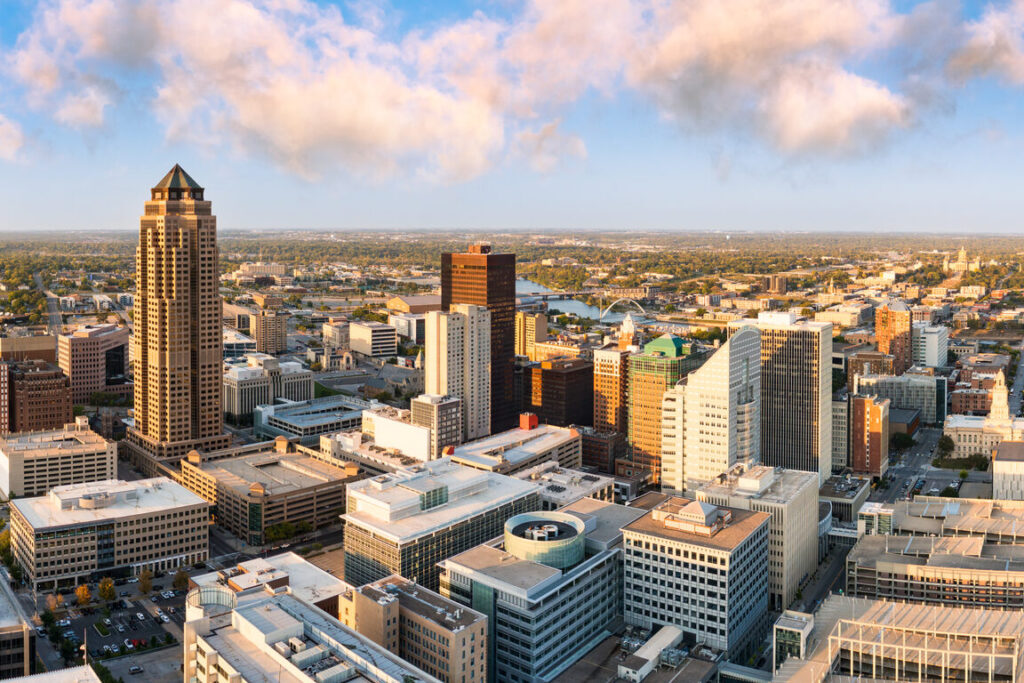
Des Moines flies under the radar, but politically, it’s doing something rare, staying centered. Iowa often leans right, but Des Moines’ educational institutions, medical centers, and tech companies bring in progressive ideas. “Iowa nice is real,” said a Des Moines local on Reddit. Even when views clash, it’s not usually explosive. Town halls are full, but respectful. Family dinners aren’t battlegrounds. The city’s practical approach to life, farming, finance, and future planning keeps everyone grounded. In a world of extremes, Des Moines shows there’s still space for thoughtful, quiet, political variety.
13. Orlando, FL
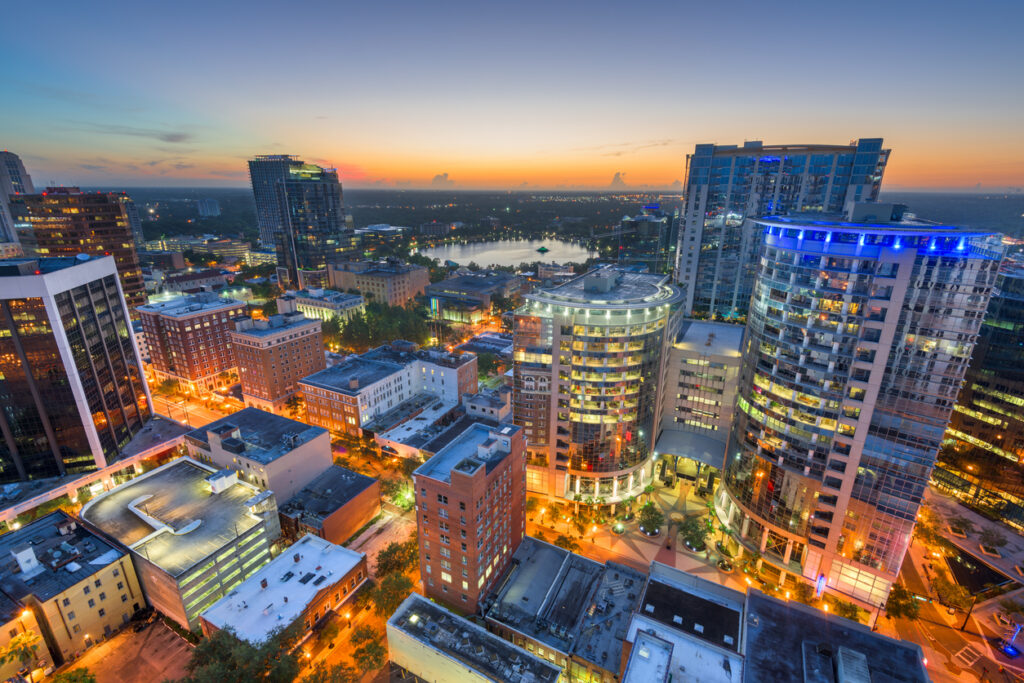
Orlando is more politically complex than its theme park reputation suggests. The city itself skews liberal, with strong LGBTQ+ support and a growing Latino population. Yet, it sits in a county and region that flips regularly between red and blue. “You never know where Central Florida will land,” shared a campaign worker on CNN. Locals often focus on tourism, housing, and education over hot-button national topics. That shared economic focus helps keep political battles at bay. In a swing region like this, people often learn that mutual goals matter more than perfect political alignment.
14. Anchorage, AK
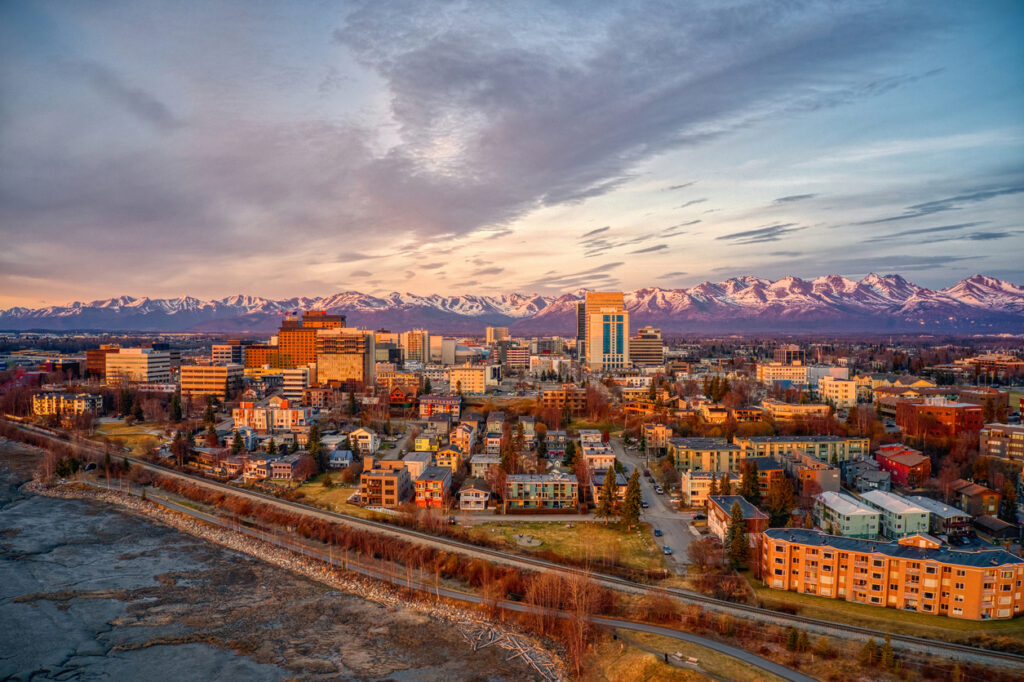
Anchorage has never followed the national script. Alaskans tend to vote issue by issue, not by party. Some advocate for gun rights and green energy in the same breath. “We don’t fit into boxes,” one resident told The Atlantic. Anchorage leans left on social programs and right on independence and resource use. That mash-up means people regularly work together on city planning, education, and public safety. The harsh climate might have something to do with it, when survival depends on cooperation, politics take a backseat. Anchorage proves ideological mix doesn’t have to mean constant conflict.
15. Albuquerque, NM
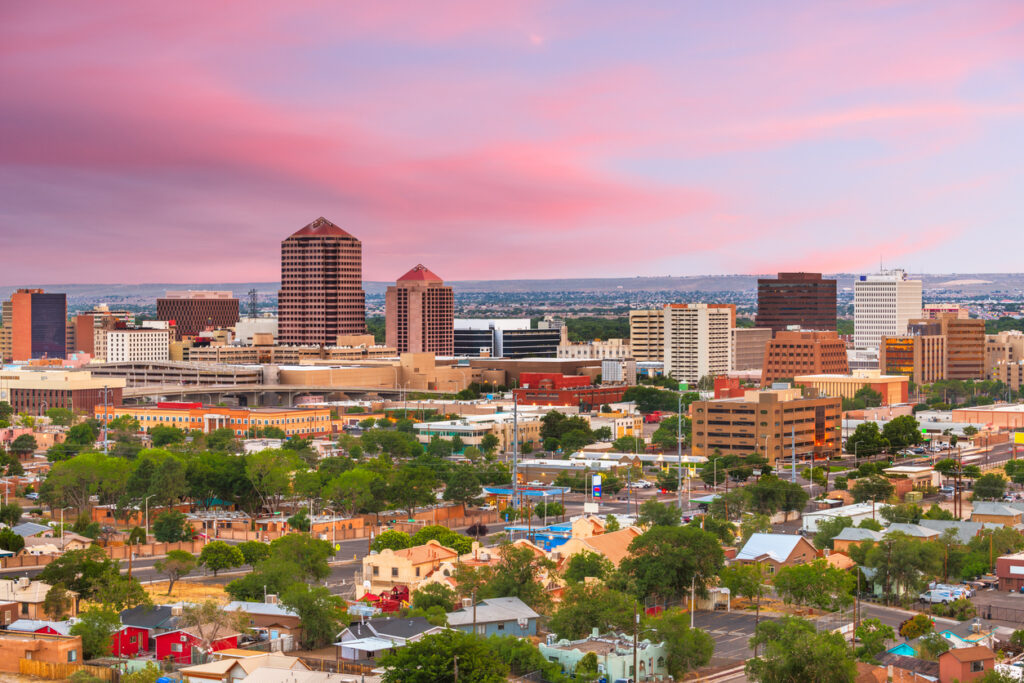
Albuquerque walks a delicate line. The city votes Democratic and promotes social equity, but the surrounding areas are much more conservative. With Native American, Hispanic, and rural voices in the mix, the result is often an even political split. “It’s like watching a tug-of-war that never quite ends,” said a PBS NewsHour analyst. And yet, services get provided, communities keep talking, and elections stay tight. This quiet balancing act helps Albuquerque thrive. It might just be the kind of city that shows America how to move forward by listening, adjusting, and staying present, no matter where you stand.
This story 15 U.S. Cities Where Conservatives and Liberals Coexist and Somehow Make It Work was first published on Daily FETCH


